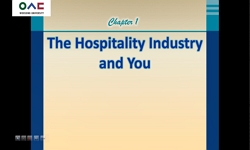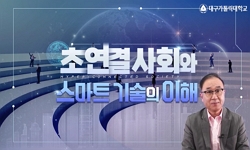근대의 세속화를 거치며 정치적 영역에서 배제된 종교는 윤리의 하위 범주로 작용하며, 개인의 도덕적 행위를 규율하는 윤리적 규범으로 작용했다. 그러나 세계에서 발생하고 있는 전쟁, 난...
http://chineseinput.net/에서 pinyin(병음)방식으로 중국어를 변환할 수 있습니다.
변환된 중국어를 복사하여 사용하시면 됩니다.
- 中文 을 입력하시려면 zhongwen을 입력하시고 space를누르시면됩니다.
- 北京 을 입력하시려면 beijing을 입력하시고 space를 누르시면 됩니다.

탕자(들)의 비유에 관한 내러티브적 윤리 고찰: 작은아들의 규범적 어긋남을 통한 ‘종교와 윤리’의 관계 설정 = Narrative Ethics Reflections on the Parable of the Prodigal Son(s): Establishing the Relationship Between ‘Religion and Ethics’ through the Normative Nonconformity of the Little Son
한글로보기https://www.riss.kr/link?id=A109638952
-
저자
홍임수 (연세대학교)
- 발행기관
- 학술지명
- 권호사항
-
발행연도
2025
-
작성언어
Korean
-
주제어
탕자 ; 종교-윤리 ; 데리다 ; 환대 ; 초연결 ; Prodigal Son ; Religion-Ethics ; Derrida ; Hospitality ; Hyperconnectivity
-
등재정보
KCI등재
-
자료형태
학술저널
-
수록면
125-153(29쪽)
- 제공처
-
0
상세조회 -
0
다운로드
부가정보
국문 초록 (Abstract)
근대의 세속화를 거치며 정치적 영역에서 배제된 종교는 윤리의 하위 범주로 작용하며, 개인의 도덕적 행위를 규율하는 윤리적 규범으로 작용했다. 그러나 세계에서 발생하고 있는 전쟁, 난민, 갈등, 혐오와 차별, 극심한 빈부격차 등의 문제들은 ‘도덕-윤리적 규범 체계’의 근원적인 물음을 제기하며 새로운 대안을 제시할 것을 요구하고 있다. 본 논문은 누가복음서 15장에 나타난 탕자의 비유를 통해 ‘윤리-종교’의 관계를 재설정하여 윤리적 규범의 한계를 극복할 종교적 역할을 제언하고자 했다. 전통적 세계관에 비추어 보면 작은아들의 행위는 ‘윤리적 어긋남’이자 규범을 벗어나는 탈선행위다. 그러나 한편으로 작은아들의 행위는 기존의 세계가 그려낼 수 없던 아버지의 새로운 상(像)을 나타내는 혁명적 역할로 이해할 수 있다. 즉, 규범적 세계관에서 ‘탕자’인 작은아들은 신앙적 세계관에서는 혁명가가 된다. 작은아들은 종교가 윤리의 하위 범주에서 작동하는 기존 체계를 거부하며 믿음을 통한 신앙의 비약을 통해 진리의 세계에 접근했다. 본 논문은 작은아들의 행위를 데리다의 ‘법과 진리’에 대한 개념을 통해 해석하며 ‘윤리와 종교’의 관계를 재설정하였다. 즉, 종교는 기존의 윤리적 세계관을 뛰어넘는 ‘비약의 원동력’으로 윤리적 규범으로 실행할 수 없는 ‘신의 무조건적 사랑과 환대’의 세계를 여는 힘으로 작동해야 한다.
다국어 초록 (Multilingual Abstract)
In modern secularization, religion has been excluded from the political sphere and has served as a subcategory of ethics, providing ethical norms to guide individual moral behavior. However, the world’s problems of war, refugees, conflict, hatred an...
In modern secularization, religion has been excluded from the political sphere and has served as a subcategory of ethics, providing ethical norms to guide individual moral behavior. However, the world’s problems of war, refugees, conflict, hatred and discrim-ination, and extreme disparities between rich and poor raise funda-mental questions about the moral and ethical normative system and call for new alternatives. Using the parable of the prodigal son in Luke 15, this paper attempts to redefine the relationship between ethics and religion, suggesting a role for religion in overcoming the limitations of ethical norms. In the traditional worldview, the young-er son’s behavior is an “ethical violation” and a deviation from the norm. However, the younger son’s behavior can be understood as a revolutionary role that represents a new image of the father that the traditional world cannot portray. In other words, the younger son, who is a “prodigal son” in the normative worldview, becomes a rev-olutionary in the religious worldview. The younger son rejects the existing system in which religion functions as a subcategory of ethics and enters the world of truth through a leap of faith. This paper inter-prets the younger son’s act through Derrida’s concept of law and truth, and reconstructs the relationship between ethics and religion. In other words, religion should function as a “leap forward” beyond the existing ethical worldview and as a force that opens the world of “divine unconditional love and hospitality” that cannot be practiced through ethical norms.
동일학술지(권/호) 다른 논문
-
- 연세대학교 한국기독교문화연구소
- 박서연
- 2025
- KCI등재
-
목회자의 성 관련 이슈에 대한 목회 슈퍼비전: 정신역동의 관점에서
- 연세대학교 한국기독교문화연구소
- 김아영
- 2025
- KCI등재
-
검, 권위 그리고 평화: 16세기 아나뱁티스트 평화 사상의 일치와 차이
- 연세대학교 한국기독교문화연구소
- 전인성
- 2025
- KCI등재
-
- 연세대학교 한국기독교문화연구소
- 이신형
- 2025
- KCI등재




 KCI
KCI






